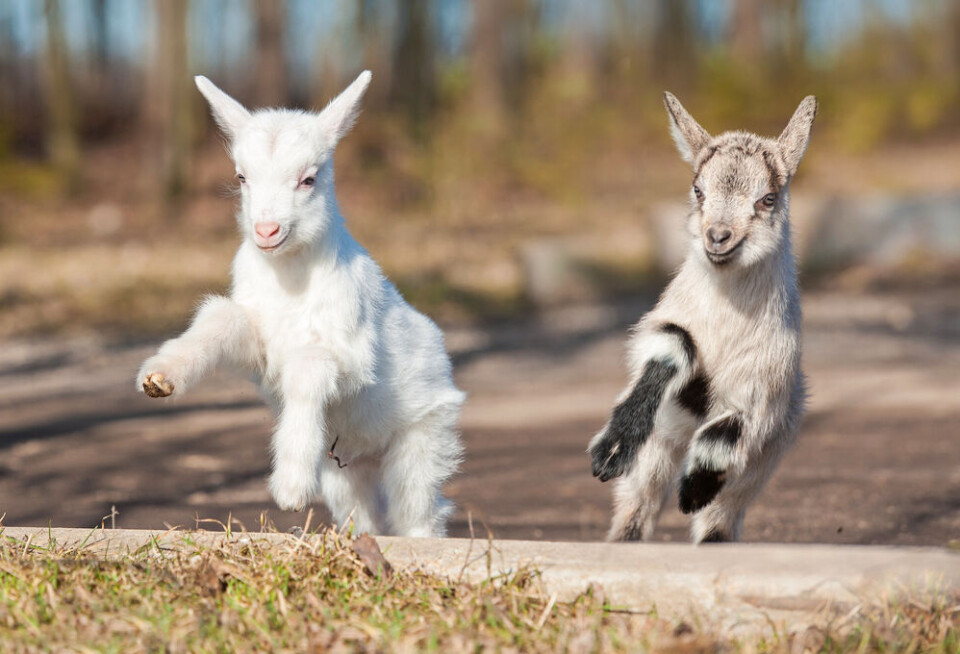-
Police across France hunt abandoned cars to free up spaces in urban areas
Vehicles cannot be parked on a public road in the same place for more than seven days
-
Senators examine proposal to guarantee access to cash machines in rural areas of France
Some 18.6% of French communes had access to at least one local ATM in 2024
-
French weekly weather forecast February 9-13: Unsettled with winds of up to 100km/h
Flood risk may increase in several regions and mountain conditions set to worsen
Adopt a goat scheme in France looks for landowners to save animals
Around 1,000 goats have been saved from the abattoir in five years

A scheme that enables people in France to ‘adopt’ a goat has saved more than 1,000 animals from the abattoir. It has also “created joy”, says its founder.
The Règne Animal association launched the scheme to save goats from being killed and estimates that more than 1,000 goats have been saved in the five years since the campaign began.
‘Waste from the dairy industry’
All the animals come from dairy farms in the departments of Somme and Aisne (Hauts-de-France). In March and April this year (2024), the campaign is offering more than 200 kids for adoption. All are aged just one to two weeks (some are even yet to be born).
Without intervention, the goats would go straight to the abattoir as they are considered superfluous to the dairy farms’ operations, which instead focuses on their mothers’ milk.
“This is waste from the dairy industry,” said Carine Demaurey, founder of the association, who personally collects the newborns. “The farms get rid of them as soon as the goats are born so they can take the milk from their mothers. So as soon as they have a lot of them, instead of getting rid of them themselves, they call me.”
Nationwide adoptions
Ms Demaurey also sometimes picks up ‘reformed goats’. These are older goats that no longer produce milk. She travels around northern France to rehome all of the animals, in a bid to place them with the most suitable adopters.
Since the start of March, 120 kids and older goats have been adopted by private individuals, while 15 are with foster families, waiting to be adopted. Around 100 are still yet to be rescued.
Locations have included Lille, Villeneuve-d'Ascq (Nord), Senlis (Oise), and Rouen (Normandy).
Soon, the association is set to launch a crowdfund to help it buy a van to make rehoming easier.
Adoption criteria
The goats do not only go to farms; individuals with large gardens or paddocks are among those to adopt too.
One adopter, 52-year-old Laurent Blin, and his wife - who live in a house with a large field in Valenciennes (Nord - have been among those to take in two kids.
He said: “I'd never really thought about [goats being slaughtered in the dairy industry], I thought there was a law against it. We're not necessarily militants for this type of cause, but it makes sense to us [to adopt]. It's strange to think that they're considered as waste."
In order to adopt, adopters must:
- Adopt a minimum of two kids
- Have a minimum plot of 1,200m² for two kids, surrounded by a fence 1.5 metres high
- Provide a warm, enclosed shelter
- Have the time to bottle-feed the kids three or four times a day until they are three months old
- Think of the goats as pets, not working animals
Anyone who is interested, and who can fulfil the criteria, can call 06 17 56 79 65.
Plant-based alternatives
Mr Blin said that adopting two goats had prompted him and his wife to change their habits, and stick to local products, and be “more vigilant about what we buy and where it comes from”.
Ms Demaurey, of Règne Animal, said that the association also wants to raise awareness of plant-based alternatives to animal milk, including oat, soya, almond, coconut, rice, almond, pea, hazelnut, and hemp.
She said: "[Humans] are the only ones to consume the milk of other species when we reach adulthood, and that's not right.”
Animal welfare association estimates that in 2021, 812,000 kids were slaughtered in France as part of dairy industry operations.
Read also
Blue tits and goats are French city’s secret weapons against invaders
The legend of the ‘dahu’: the French mountain goat that does not exist
Meet the organic goat farmers at ‘La Chèvrerie de la Peytavigne’
























